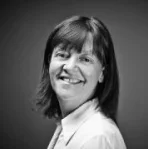 Independence Day in the US, Brexit in the UK and a new ALLi member service has Director Orna Ross pondering the importance of an indie mindset in what she sees as a new phase for self-publishers. What does it take for indie authors to thrive these days, in an increasingly challenging landscape?
Independence Day in the US, Brexit in the UK and a new ALLi member service has Director Orna Ross pondering the importance of an indie mindset in what she sees as a new phase for self-publishers. What does it take for indie authors to thrive these days, in an increasingly challenging landscape?
Today the US celebrates Independence Day, the UK is working out the implications of its vote to leave the European Union, and at ALLi, we just introduced a new service for our Professional members that ignited intense debate. Together, I found these raising questions about what independence means, these days, for self-publishing authors.
Brexit
First: Brexit, as it has been dubbed (though Northern Ireland also will find itself, on the ratification of Article 50, outside the European Union). It has not been possible for ALLi to make a meaningful statement, as yet, around what these political developments might mean for self-publishing authors living in, or selling into, the UK or the EU. It's too soon to tell.
What we can say is that self-publishing authors are well placed to navigate the choppy waters ahead. No creative community is more nimble, more open to change, or more internationalist in its outlook. And we are used to sharp and fast changes in our trading conditions.
We've seen such changes many times with Amazon KDP, for example. And the community's flexibility was in evidence in its response to EU VAT law changes last year.
In the main, self-publishers who sell ebooks directly to readers coped with that unexpected and complex VAT imposition by geo-blocking EU countries from their direct sales. And already, campaigners from the VAT Action Group have visited Whitehall to discuss the implications of Brexit and how it might change things around EU VAT.
They report that geo-blocking will continue for the foreseeable future. You can see their update here and, though much remains uncertain, what you can count on is the dedication and hard work of the EU VAT Campaign group.
You can also rely on ALLi continuing our policy of fostering global collaborations and connections; our work with national and international author organizations; and our campaigns for self-publishing authors’ rights and interests globally.
Balancing Independence and Collaboration
The UK is likely to find that being a small player outside an established conglomerate makes reliance on community and collaboration a necessity for success. Certainly, authors are finding this ever more important as the self-publishing space matures.
Last week Jon Fine, for many years the public face of Amazon self-publishing services, spoke in an interview with publishing consultant and commentator, Porter Anderson, of “an increasingly sophisticated author space”, where opportunities to stand out have become more challenging. “The trailblazers had the benefit of being first,” Fine said. “Those who come behind them have to deal with increasing saturation.”
Mark Coker wrote some time ago in similar fashion on the Smashwords blog and almost everyone is agreed that it's not as easy, these days, for an indie author to sell ebooks.
At ALLi, we are beginning to think of this as a new phase for self-publishing authors, a sort of Self-Publishing 2.0., in which trading conditions have changed and new possibilities are emerging for those who are alert to opportunity.
Self-Publishing 2.0
It should be said that the challenges indies are facing are there for all authors. And that self-publishers are still far better at finding and building a readership from scratch than trade publishing. And also that, as more and more books are published and some authors are in a race to the bottom, it is those with a genuine indie mindset and a rights perspective on publishing, who are seeing and sustaining success.
The true indie author values publication and readers more than validation by publishers or peers, and expects acknowledgement of self-publishing success to be reflected in any contracts and terms they negotiate. They also understand that a good book can be sold on many platforms, in many territories and languages, and turned into various formats, and are constantly thinking about the best ways to do that.
As selling books at low cost through digital platforms becomes more challenging, they are questioning whether this model is the only, or best, way to exploit their hard-won writing and publishing skills. They are exploring new commercial models, from courses to memberships, from crowdfunding to direct subscriptions.
This is self-publishing 2.0. and it is important not just to self-publishing authors, but also to the army of services, from freelance designers to multi-national distributors, that we employ. And our teaching community, which now ranges from online tutors to university department and leading-edge consultants.
This need to explore author options in a more challenging environment makes it more important than ever for our community to come together. ALLi exists to facilitate such connection and so it was rather ironic when that we found ourselves, this week, in the middle of a heated debate around division, with one member saying it was “like the EU referendum all over again!”
ALLi Professional Members
What happened? In response to requests from some of our Professional Members, we introduced a closed forum to give those members privacy for peer-to-peer conversations. To our surprise, a furore ensued.
Some of our Author and Partner Members feared they would lose out on Pro Members' expertise, others questioned the use of the word “professional” in this context, and others felt that such a move was elitist, a betrayal of ALLi's stated principles. (In our name, the capitalised ALL and the small i are brought together to symbolize the large group working for the small individual; and vice versa).
Briefly addressing each of these:
- Professionalism. “Professional” for this member category means “following an occupation as a means of livelihood”, not production standards of design or editorial, or professional achievements in other parts of the book-industry. There are seven publishing processes which a self-publisher must master: design, editorial, production, distribution, marketing and promotion, rights licensing and running a business. ALLi members are encouraged towards professionalism in all, and a Professional Member has attained mastery not just in the production of their books (where the measure is largely creative) but also in distribution, marketing and sales (where the measure is largely commercial).
- Education. Those Pro Members who contribute to the Author & Partner Members Forum have assured us that their encouragement and support for those starting out in self-publishing will continue. And the ALLi team will ensure that all advice, information, tips, tools and techniques will continue to be brought to all members and, where appropriate, to the wider author community.
- Elitism. This is not about making any authors feel “inferior” to or “better” than others but about ALLi's duty to provide services to all members. Many of the Professional Members felt they needed a private space to discuss issues that only kick in when a certain level of sales is reached; issues like rights licensing; management of advertising reps at services like Facebook or Bookbub; business and accounting matters; particular contractual issues, and many more. Authors may already have such discussions in their genre and friendship groups but we wanted to provide a forum where such “power-authors” can talk across genres, across territories and, crucially, across formats.
While the objections took the ALLi team by surprise, it was great to see the depth of engagement among Author and Partner members. We will evaluate the move in a few months time, from the perspective of each member group, and now have a far clearer sense of potential problems to look out for as we monitor.
We still believe all authors will benefit from Professional Members being given a space to learn from each other across formats and territories, so they can continue to blaze trails, for themselves and all authors.
So let's see.
Exploring New Possibilities
To write a good book is a big achievement. To produce and distribute a book to professional standards is a very big achievement. To do all that and then build a readership to beyond 50,000 copies or equivalent is a very, very big achievement. All who self-publish can be proud of those indie authors who have succeeded in doing all three. And grateful for their generosity in sharing how they've done it and their continued exploration of what's possible for authors today.
This was another reason for ALLi to give those members the space and privacy to speak freely to each other: our wish to further the rebalancing of power in publishing begun by digital.
In the first phase of self-publishing, authors were thrilled to have the technology, services and platforms provided by Amazon and others and these continue, of course, to be deeply appreciated. We could not do what we do without them. But the digital revolution will have failed to deliver for authors if we simply replace dependence on trade publishing with dependence on Amazon.
As we move into Self-Publishing 2.0, authors need to see ebooks and POD as the start, not the end, of the self-publishing story.
The “power authors” who make up ALLi's Professional Membership, with their large readerships and proven skill in marketing, selling and promotion, are key to the expansion of creative possibilities and the rebalancing of power in the publishing landscape in favor of the author.
The Indie Mindset
In the wake of Brexit, ALLi will continue to encourage all our members in all efforts and experiments that aim for excellence; to campaign for self-publishers to take their rightful place within publishing; and to foster the independent mindset, balanced with the openness to collaboration and commitment to professionalism at all stages of the process.
This is the key to self-publishing success, whether an author is starting out, or setting out to sell their next million. And this is what will see self-publishing thrive, commercially and creatively, through whatever vagaries the future may bring.
Happy Independence Day, dear self-publishing authors!

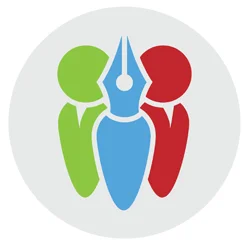
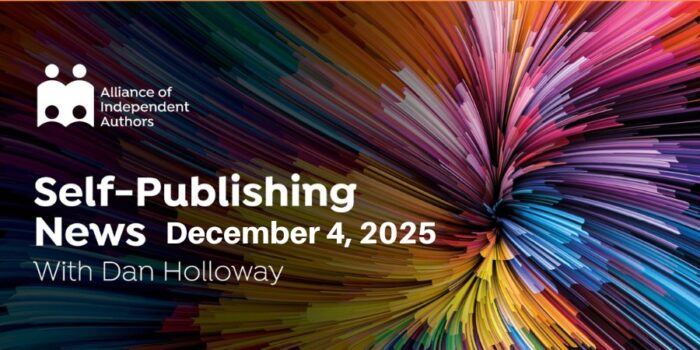
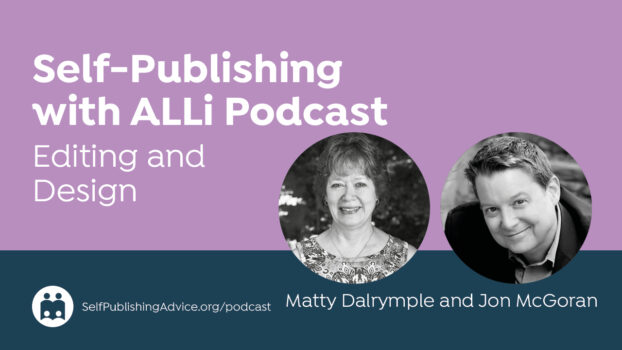
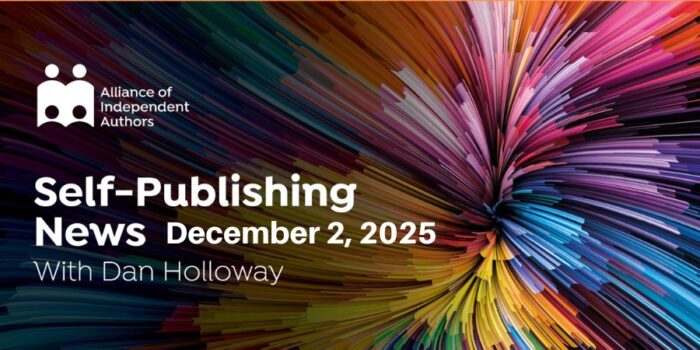
[…] Source: Happy Independence Day. But How Independent Are Indie Authors? […]
[…] the intro, I mention Orna Ross’s article on How independent are indie authors anyway?, Audible’s new podcast subscription service, my blog post on how to create boxsets and why […]
[…] an ALLi blog post on July 4 headlined, Happy Independence Day. But How Independent Are Indie Authors?, Ross first touches on the Brexit referendum vote on the UK’s membership in the EU, noting […]
Orna, thank you for this thoughtful and insightful post. Somehow I missed the forum about the setup of the Pro Membership and was unaware there had been any backlash. Your reasons are valid for providing this opportunity to authors who have achieved a certain level of success. Some of the issues discussed at that level of publishing would be of no interest to new author/publishers. I’m sure everyone will still participate in all ALLi discussions and share information as in the past. Authors helping and supporting authors is what ALLi has always represented to me. I don’t see that changing. Onward!
Thanks so much Patricia! So far I don’t think we’re seeing any difference in the ALLi Author Forum at all… and I’m hopeful that we won’t. Onward, yes, and upward, hopefully.
Great post. I truly believe that those of us just getting in on the game should have all the information available to us, including that it’s not all sky and apple pie.
I have to say that I was also a little surprised about the mini-backlash over the creation of the professional group. I completely understood the need for it and my first thought was, “I can’t wait to get into that group one day.”
Thanks Grace! Good to hear your thought and hope you had lots of blue sky and apple pie for July 4th!
Very much enjoyed this post, Orna. TY
And this particularly resonated:
“The true indie author values publication and readers more than validation by publishers or peers, and expects acknowledgement of self-publishing success to be reflected in any contracts and terms they negotiate. They also understand that a good book can be sold on many platforms, in many territories and languages, and turned into various formats, and are constantly thinking about the best ways to do that.”
Thanks so much Lucinda! It can be hard, when doing the busy work, to brainstorm but it’s important to keep opening up the sense of what’s possible. Exciting times!
Is it worthwhile to set up a Facebook page? I have been writing about kids displaced by war,
Immigrants, and other modern history topics. I was published by FSG since 1994 until
The buyout by Macmillan.
I have a website but I don’t think it’s useful except as a way for kids to email me.
I am not twitter literate!
I have 6 books self published by Createspace. Besides the 14 others….
I am disabled, so no school trips.
Thanks so much.
alice james
http://Www.alicemeadchildrensbooks.com
Hi Alice, a Facebook Page only makes sense if you have a plan for how you will use it, it’s not an answer in and of itself, especially as you already have a website. Marketing children’s books is challenging. Here are some tips from our children’s advisor, Karen Inglis: https://kareninglis.wordpress.com/marketing-tips/ You may find some help in this post by one of our members who sells consistently well (in the comments as well as the post itself) https://selfpublishingadvice.org/inde-author-success-story-how-i-do-it-j-m-forster/ Good luck!